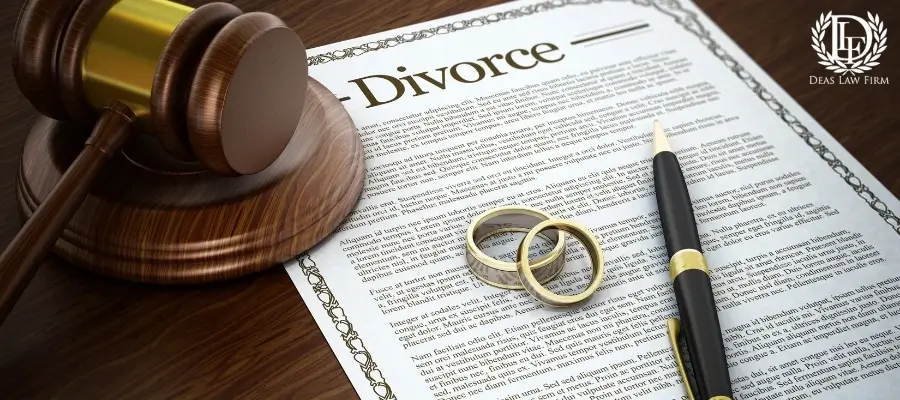|
|
Last Modified on Sep 12, 2025
The process for filing for divorce in South Carolina is the same for every case, but the specifics can vary widely. A qualified divorce lawyer can help you navigate South Carolina divorce laws and make sure your interests are protected throughout the process. Understanding what to expect can take some of the stress out of divorce. First, let’s look at how to file for a divorce in South Carolina, and then we can address differences.
South Carolina Divorce Process
Divorce is the process of legally ending a marriage. The main goals of a divorce are to divide property and debts equitably and determine what is fair for both spouses in regard to financial support. In general, the process follows a standard procedure:
- You must meet certain requirements for residency and have grounds for divorce.
- You need to file a summons and complaint with the court in your county to officially start the divorce process.
- You must serve the summons and complaint to your spouse.
- Both spouses generally must submit complete financial disclosures.
- You need to negotiate the division of property and debt and determine spousal support if needed.
- It is important to note that child custody and support are handled separately from divorce, property division, and spousal support.
- You attend the final hearing.
- The court issues a final order of divorce.
South Carolina Divorce Rates
South Carolina is ranked fourth highest in the United States for marriages at 20.6 per 1,000 women, according to the US Census Bureau’s most recent report. Interestingly, South Carolina ranks 24th for divorce, at 9.1. By contrast, the state with the highest divorce rate is Arkansas at 11.9, and the lowest is Vermont at 4.6.
Requirements for Divorce in South Carolina
In South Carolina, one or both spouses have to be a resident to seek a divorce. If both live in South Carolina, at least one has to be a state resident for a minimum of 90 days before filing for divorce. If one party lives in South Carolina and the other lives in another state, the spouse who files has to live in South Carolina for at least a year before they can file for divorce. There must also be grounds for the divorce. These grounds can be:
- No fault: This is where there does not have to be a specific reason for the spouses to end their marriage, and it requires that the spouses live separately without being in a relationship for a year before they can file for divorce.
- Fault: This means that one spouse claims the other’s actions directly led to the end of the marriage through inappropriate behavior, including adultery, physical abuse, drug or alcohol abuse, or desertion for at least a year.
Property Division in South Carolina
One of the main elements of a divorce is separating the assets and debts of the marital estate, which includes everything that was acquired during the marriage by either spouse. Anything owned prior to the marriage or received as gifts is generally considered personal property and not included in the marital estate, but this can vary depending on the circumstances.
South Carolina follows the equitable distribution system of property division for divorcing spouses. This means that all marital property is divided equitably, not necessarily equally. The courts determine this based on the length of the marriage, how each spouse contributed, including unpaid labor such as raising children, and the economic situation of each spouse. In fault-based divorces, being found at fault can also be taken into account.
Alimony in South Carolina
Alimony, sometimes also called spousal support in legal settings, means payments made from a spouse to a lower-earning spouse after separation or divorce to provide financial support. Depending on the circumstances, alimony may be paid temporarily or long-term. However, not every divorce warrants alimony. One spouse can request financial support and has to show that there is a need and that the other spouse can afford the payments. Other factors include:
- The length of the marriage
- The age and health of the spouses
- Each spouse’s earning capacity
- Each spouse’s contributions to the marriage
- The standard of living during the marriage
FAQs
How Much Does It Cost to File for a Divorce in South Carolina?
The cost to file for a divorce in South Carolina can vary widely from case to case. The total cost generally includes filing and court fees, service of process, and other official fees. In most cases, both spouses will hire a divorce lawyer, so the attorney fees and possibly fees for mediators and other professionals. A contested divorce is generally more costly than an uncontested divorce.
How Do I Start the Divorce Process in South Carolina?
The divorce process in South Carolina starts by filing the official paperwork with the court. However, you may need to wait to file if you do not meet the residency requirements outlined above. Your divorce attorney can help determine if you meet the requirements, as well as complete and file the paperwork on your behalf.
How Long Do I Have to Be Separated in South Carolina to File for Divorce?
In South Carolina, you have to be separated for one year to file for a no-fault divorce. If there are grounds for a fault-based divorce, you may not have to wait for the full year of separation. However, most divorces do not qualify for a fault-based divorce. If you think you might have grounds for a fault-based divorce, be sure to bring that up to your divorce lawyer right away so they can take that into account.
What Are the Reasons for Divorce in South Carolina?
South Carolina recognizes no-fault and fault-based divorce. In no-fault divorces, the spouses have to live separately for a year. In fault-based divorce cases, the spouse who files for divorce has to show that the other spouse’s actions led to the end of the marriage through one of the following reasons: alcohol or drug abuse, adultery, physical abuse, or desertion.
Hire a Divorce Lawyer
At Deas Law Firm, our family law attorneys know that divorce is a stressful and overwhelming process where emotions can often run high. We strive to help each client navigate their divorce through fierce advocacy, openness, and integrity. If you’re facing a divorce in South Carolina, contact our office today to schedule your initial consultation and learn what an experienced divorce lawyer can do for you.






